Programmes
In Hougang Primary School, the Science department aims to instil in each pupil a passion for Science through the acquisition of science knowledge, processes and attitudes. We believe Science is a subject which can be leveraged on to strike a balance between pupils’ learning of content knowledge and their acquisition of competencies and values to thrive in the future. To achieve this vision, we provide every child, during their six years of elementary education, a varied experience to get a sensing of the world around him and get him curious and excited to find out more about the natural world.
This applied learning programme consists of a package of activities that is catered to all P1 to P6 HGPians, extending even beyond the PSLE.
Primary 2 Life Cycle of a chicken
Pupils witness the cycle of life of a chicken and appreciate how “technology” (such as an incubator) is tapped on to assist mankind.
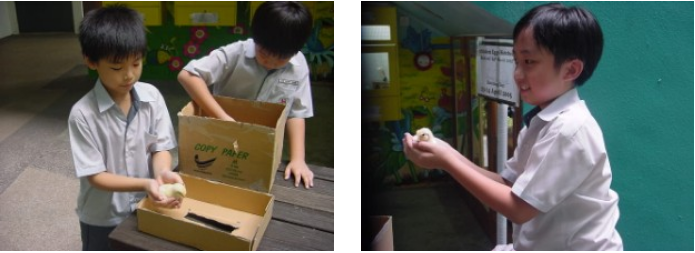
Primary 2 Bacteria and Hand Washing
Students will touch an agar plate with dirty hands and washed hands and compare the difference.
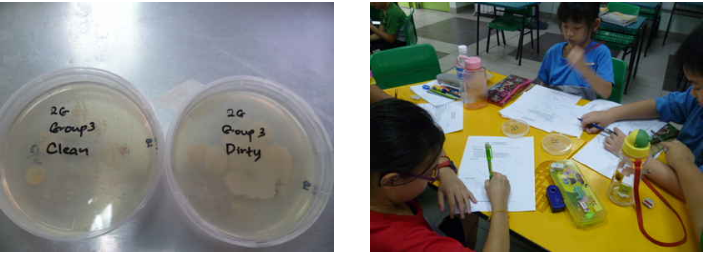
Primary 3 Hydroponics
Students experience growing their own vegetables using hydroponics, advertise, package and sell them.
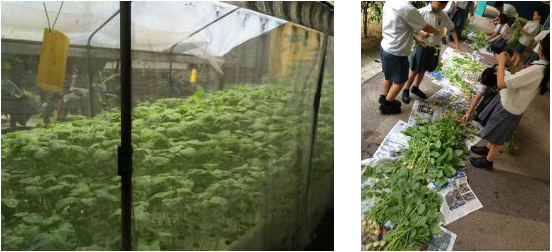
Primary 3 Hydroponics Kits
Students find out how different types of water affect the growth of plants. They grow Kang Kong in mineral water, rain water, pond water and nutrient water and record the growth rate to conclude their findings.
Primary 4 Life Cycle of the Tiger Butterfly
Students will observe how a caterpillar develops into a butterfly. They will get the caterpillars from the butterfly garden and keep them in tanks together with the food plant and watch it transform into a butterfly.
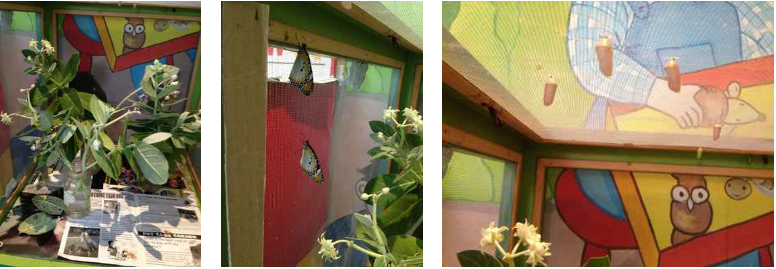
Primary 4 Stretched Classes (Genetics Programme)
Students will observe the cells of the different groups of living things at the Science Centre.
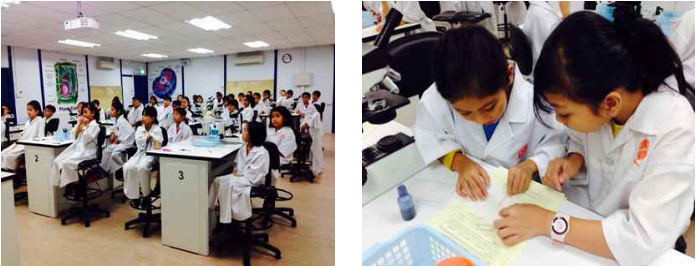
Primary 4 Herb and Spices
Students will identify some of the herbs found in the garden. They will then grow and harvest the rosella fruit to make tea and jam and discover its medicinal properties.
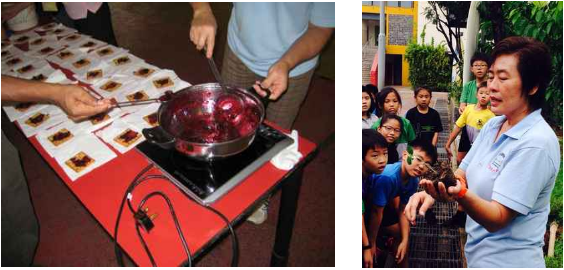
Primary 4 Science Camp
With their overnight bags packed, 100 Primary 4 students were raring to spend the night at S.E.A. Aquarium™ at Resorts World Singapore on 29 May 2014. These students had signed up for the Ocean Dreams programme which gave them an overnight immersive experience to go behind the scenes and explore the wonders of our blue planet with fun-filled activities and games at S.E.A. Aquarium™. As students drifted into slumber, in front of the spectacular Open Ocean Habitat at the world’s largest aquarium, home to more than 100,000 marine animals from over 800 species, including majestic manta rays, goliath groupers and leopard sharks, it was as if they were sleeping underwater. It was definitely an experience that students would never forget.
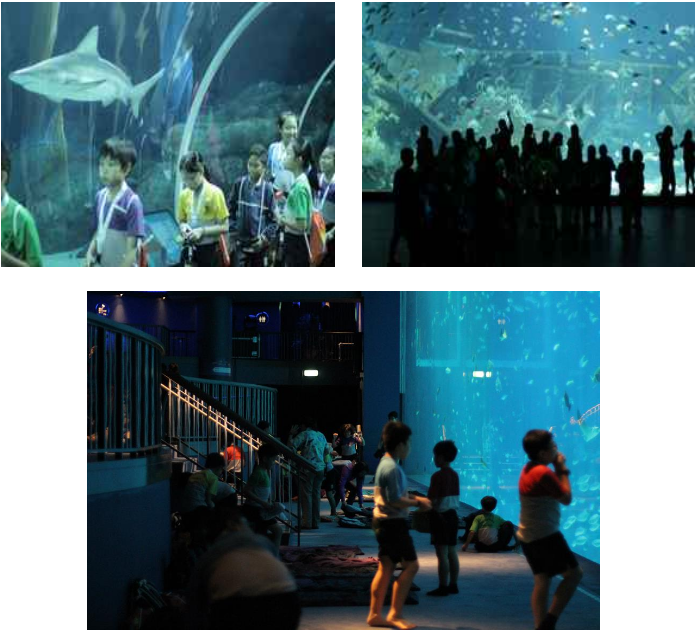
P4 Botanical Gardens
The pupils who did not participate in the P4 Science camp had the chance to do a nature trail at the Singapore Botanic Gardens. The pupils moved in groups taking in sights of stunning sculptures, fauna and flora, especially the heritage trees such as the infamous Tembusu. They worked in pairs as they answered questions and took photographs using IPad assigned to them. Their responses were captured in the IPad and hardcopies printed for them as evidence of their learning. The pupils were even taught how to grow hydroponics plants using plastic cups! It was indeed a meaningful and fun learning journey at the Singapore Botanic Gardens!
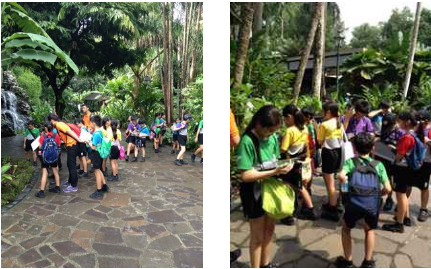
Primary 5 Terrarium
Students discover how a terrarium works and in the process learn about the water cycle and photosynthesis.
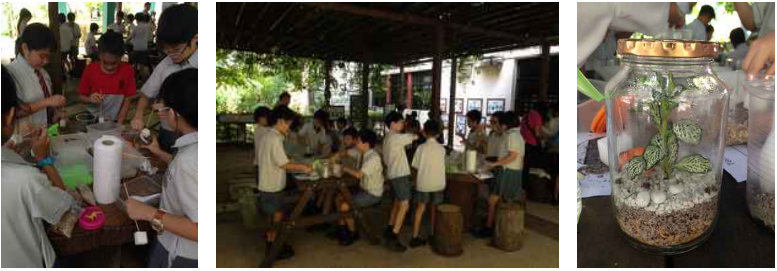
Primary 5 The Mystery of Anastasia (Genetics programme)
Students act as forensic scientists and use the process of Gel Electrophoresis to identify a murderer.
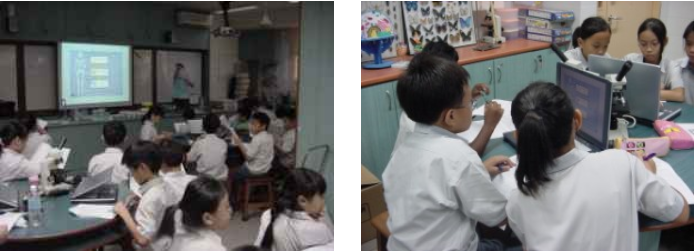
Primary 5 Baggie Cell Model
Students will make a model of a cell using some dried food to help them understand the structure of a Animal Cell.

Primary 5 Stretched Classes (Genetics Programme)
Students get to construct a model of DNA and extract DNA from bacteria at the Science Centre.

Primary 6 Bacteria Outbreak!
Bacteria and virus outbreaks can cause chaos and serious harm to a huge number of people especially if they are not detected and controlled in time. It is important to know how to handle outbreaks and how to prevent outbreaks. In this lesson, students will be investigating a case of outbreak through a series of basic epidemiological techniques. They will find the source of the infection,resolve the case and understand how that outbreak could have been prevented.
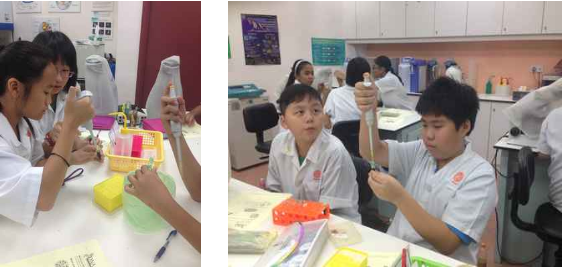
Primary 6 Stretched classes DNA Detectives (Genetics Programme)
This lesson demonstrates how DNA can be used in the crime lab to solve mysteries. Students act as forensic scientists and use the process of Gel Electrophoresis to identify a murderer.
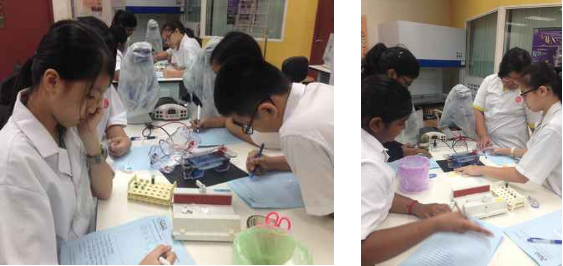
Primary 6 Exploration of Natural Habitat
After the SA2 examinations, our P6 pupils headed off to Sungei Buloh Wetlands Reserves on a learning journey. In tandem with the theme on Interactions with the Environment, the pupils were brought around by experienced and qualified guides to learn more about the adaptations of the flora and fauna in the harsh environment and how man’s action could have an impact on our natural environment. They see for themselves how they could apply their knowledge learnt in the classroom into an authentic environment and witness the efforts put in to protect our natural heritage.


